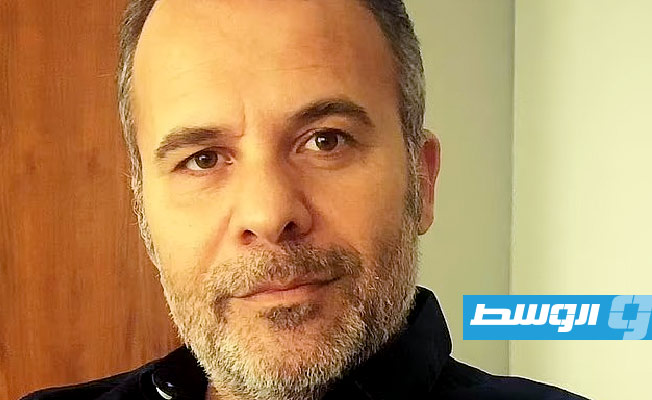- Sat April 27, 2024|
 Alwasat FM|
Alwasat FM|

According to Britain's Daily Mail, three BBC journalists were kidnapped and interrogated at a Libyan prison for five days, "sparking an international diplomatic scramble to secure their release."
The journalists were part of a film crew making a documentary on Lebanese imam Musa al-Sadr, who was invited to the Libya in 1978 and disappeared.
The three, who have not been named, were kidnapped shortly after arriving in Tripoli in March.
The crew was released following diplomatic pressure from the UK foreign office, the Swedish government, and the BBC.
The BBC journalists were traveling with reporter Kassem Hamadé, who wrote an account of his captivity for the Swedish newspaper Expressen.
Hamadé said: "It is Sunday afternoon when I and the film crew I will be working with land at the airport in Tripoli, the capital of Libya.
'We were here to make a documentary for the BBC. I still don't know why I was kidnapped, but the closest I can come to an explanation is that the documentary I traveled to Libya to complete has spooked people in the intelligence community, men of great power who were formerly loyal to Libyan dictator Muammar Gaddafi."
In the article, Hamadé also explained being held into a cell three meters long by two meters wide.
He said: 'The guard's voice is in my ear. "You will die. We will cut you to pieces and bury you here. No one knows you're here, it goes blank".'
He continued: 'The last word – blanco – I know all too well what it means.
'I have met people who were tortured 'in blanco'. They have been suspended by their wrists with the help of a winch until only the tips of their toes touch the ground.
'In that position, they have since been subjected to mindless violence. Those I have met were lucky to make it out alive. Many do not. How will it go for us?'
Hamadé writes that three days earlier the crew had arrived at Tripoli airport and "the security people looked at us with great suspicion and even though all the passengers have already left the arrivals hall, we remained for three hours before our passports are stamped and we are allowed to enter the country."
"We are two journalists, a cameraman and a producer from three different countries. We are about to complete a documentary film about the Lebanese imam Musa al-Sadr who was invited to Libya in August 1978 and disappeared."
"Two local drivers and a bodyguard are waiting for us at the airport parking lot. They have earplugs and are on guard the whole time, acting like we're in a war zone. It bothers me."
Hamadé said they were booked into a hotel prior to their arrival but once in the city Libyan officials rebooked the film crew into the Radisson in Tripoli.
The following morning, while awaiting further accreditation at the Foreign Ministry's headquarters near the hotel, several officials turned up and bundled the crew into a waiting car.
He wrote: "Me, the driver and the cameraman are forced into the back seat and I end up in the middle. I look down and am in a state of controlled shock. I whisper to my comrades without looking at them: 'We are kidnapped'."
A spokesperson for the BBC said: 'A small team working for the BBC entered Libya in March of this year with full permission, to gather material for a story."
'They were subsequently detained and interrogated over a number of days by the Libyan intelligence authorities.
'The interrogation took place despite our authorized access to the country and without a clear motive.
'We stand by our journalists and are deeply concerned about the treatment of this team.
'The safety of those working for the BBC is our first priority and we continue to support this team.'
A BBC insider to Daily Mail that the broadcaster does not comment on detailed security matters and continues to support those affected by the interrogation, who had the official paperwork to enter the country.
An Foreign, Commonwealth & Development Office spokesperson told the paper: 'We supported four British men who were released from detention in Libya. We raised their cases directly with the Libyan authorities.'
Comments